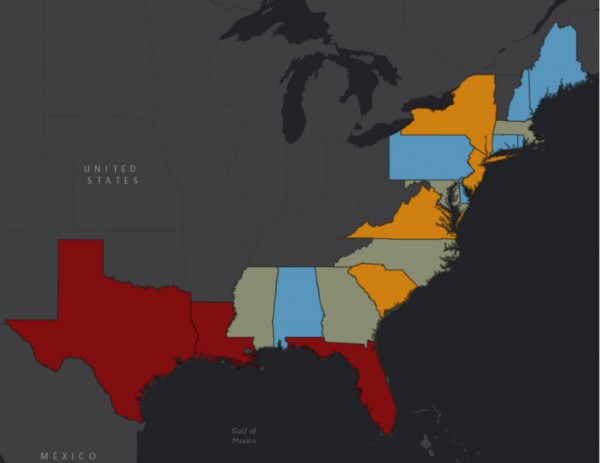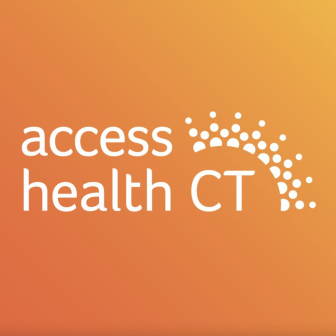CT Launches Entrepreneur Learner’s Permit to Cut Start-Up Fees
/Connecticut’s Entrepreneur Learner’s Permit program, operated by CTNext, is underway. The two-year pilot initiative, which reimburses first-time entrepreneurs for filing, licensing, and permitting fees associated with starting a business, is aimed at giving certain businesses a boost on the bottom line.
A wholly-owned subsidiary of Connecticut Innovations, CTNext is Connecticut’s innovation ecosystem, designed to build a more robust community of entrepreneurs and accelerate early-stage growth by providing access to talent, space, industry expertise, services, skill development, and capital to foster innovation and create jobs in Connecticut.
The Entrepreneur Learner’s Permit program, signed into law earlier this year, allows owners and executives of businesses in the information technology, bioscience, and green technology industries to receive reimbursement up to $1,500 for state and municipal business startup fees.
The Entrepreneur Learner’s Permit legislation sets a funding cap of $500,000 in Fiscal Years 2017 and 2018, equaling $1 million for reimbursable fees for entrepreneurs in the state.
Eligibility in the three industries has been defined by CTNext as the program gets started this month:
Bioscience: Defined as the manufacturing of pharmaceuticals, medicines, medical equipment, or medical devices and analytical laboratory instruments, operating medical or diagnostic testing laboratories, or conducting pure research and development in life sciences.
Information Technology: Defined as software publishing, motion picture and video production, teleproduction and post-production services, telecommunications, data processing, hosting and related services, custom computer programming services, computer system design, computer facilities management services, other computer related services and computer training.
Green Technology: Defined as the production, manufacture, design, research or development of clean energy, green buildings, smart grid, high-efficiency transportation vehicles and alternative fuels, environmental products, environmental remediation and pollution prevention.
Glendowlyn Thames, director of Small Business Innovation and CTNext at Connecticut Innovations, recently told Hartford Business Journal that “Starting and running a business in its earliest stages can be a massive undertaking, no matter the location. This benefit does more than cover fees — it is another step the state has taken to help create a more active ecosystem and assist entrepreneurs when they need it most. Entrepreneurs scrutinize every cost, so while the fees may not deter a company from coming to Connecticut, removing those fees can certainly serve as a benefit.”
The Connecticut Business and Industry Association has described the program as “a pro-small business, solid stepping stone toward paving the way for Connecticut to become a much more business friendly state.” The legislation establishing the program was authored by State Rep. Caroline Simmons-D-144 and State Sen. Scott Frantz-R-36, the Stamford Advocate reported.
“Our vision is to attract new businesses to Connecticut and to encourage entrepreneurship and job growth in our state,” Simmons told the Advocate. “This is a pro-business, bi-partisan bill that will benefit Connecticut's economy.”
The legislature’s Office of Fiscal Analysis (OFA) estimated the program will cost the state $27 million annually in lost fee revenue; other agencies like transportation and banking will lose $7 million annually. OFA assumes 25,000 startups launch in Connecticut every year.
CTNext, described as Connecticut’s innovation ecosystem, is tasked under revisions to the state’s economic development structure approved by the state legislature to “equip startups and entrepreneurs with resources, guidance and networks to accelerate growth and success.” CTNext launched in 2012, and has worked with more than 1,100 companies.
Companies need to certify that they are eligible for the Entrepreneur Learner’s Permit program, and after filling out a very brief online application, a “CTNext team member will reach out to you to collect receipts for reimbursement.” At the end of the two-year program, CT Innovations is to evaluate its effectiveness and make a recommendation to the legislature regarding whether it should be continued, concluded, or revised.
https://youtu.be/U0vyYsDrl10




 The
The 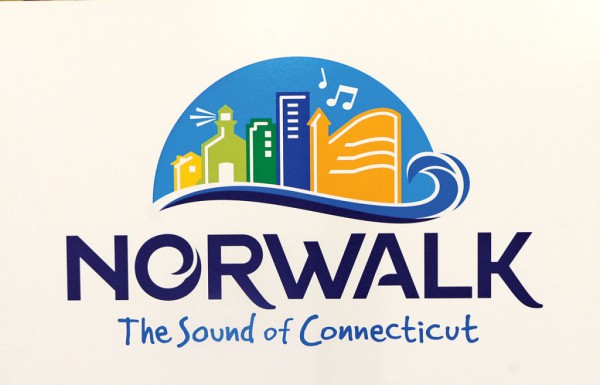 In lower Fairfield County, the city of Norwalk launched a rebranding initiative earlier this year. Using the new slogan “The Sound of Connecticut,” the campaign, according to Mayor Harry Rilling “was necessary to help reposition Norwalk. Our visual brand and identity system will become a recognized symbol of Norwalk’s progressive and connected vibe. We understand and live the brand’s values, goals and promises on a daily basis.” The Mayor
In lower Fairfield County, the city of Norwalk launched a rebranding initiative earlier this year. Using the new slogan “The Sound of Connecticut,” the campaign, according to Mayor Harry Rilling “was necessary to help reposition Norwalk. Our visual brand and identity system will become a recognized symbol of Norwalk’s progressive and connected vibe. We understand and live the brand’s values, goals and promises on a daily basis.” The Mayor 




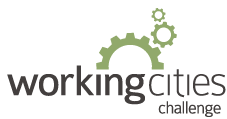 Funding for the competition prize awards will be provided both by the State of Connecticut, which has committed $1 million, and an additional $2 million commitment from private partners. The Doris Duke Charitable Foundation, The Kresge Foundation, Living Cities, NeighborWorks America, The United Illuminating Company, Stanley Black & Decker, Boehringer Ingelheim, Travelers Companies, Inc., The Hartford Foundation for Public Giving, Webster Bank, Eversource Energy, Liberty Bank Foundation, Hartford HealthCare, Barnes Group, Hoffman BMW of Watertown/Hoffman Auto Group, United Technologies Corp., Charter Communications, and Fairfield County’s Community Foundation have all committed to participating in the challenge.
Funding for the competition prize awards will be provided both by the State of Connecticut, which has committed $1 million, and an additional $2 million commitment from private partners. The Doris Duke Charitable Foundation, The Kresge Foundation, Living Cities, NeighborWorks America, The United Illuminating Company, Stanley Black & Decker, Boehringer Ingelheim, Travelers Companies, Inc., The Hartford Foundation for Public Giving, Webster Bank, Eversource Energy, Liberty Bank Foundation, Hartford HealthCare, Barnes Group, Hoffman BMW of Watertown/Hoffman Auto Group, United Technologies Corp., Charter Communications, and Fairfield County’s Community Foundation have all committed to participating in the challenge. “We are pleased to bring the Working Cities Challenge to Connecticut and are thankful to Governor Malloy for his support of the effort, as well as the Hartford Foundation, the Doris Duke Foundation, Living Cities, The Kresge Foundation, and many others,” Boston Fed President Eric Rosengren said. “The partners have come together to make it possible to bring the competition to Connecticut – precisely the model of cross-sector collaboration that forms the basis of the Working Cities Challenge. This competition focuses on the residents of the state’s postindustrial cities – places with unique assets that taken together can help to build civic leadership infrastructure, which our research shows is a key component of economic resurgence.”
“We are pleased to bring the Working Cities Challenge to Connecticut and are thankful to Governor Malloy for his support of the effort, as well as the Hartford Foundation, the Doris Duke Foundation, Living Cities, The Kresge Foundation, and many others,” Boston Fed President Eric Rosengren said. “The partners have come together to make it possible to bring the competition to Connecticut – precisely the model of cross-sector collaboration that forms the basis of the Working Cities Challenge. This competition focuses on the residents of the state’s postindustrial cities – places with unique assets that taken together can help to build civic leadership infrastructure, which our research shows is a key component of economic resurgence.” “It’s gratifying to see the strong support from Connecticut companies, foundations, and the Malloy administration for the Working Cities Challenge under the thoughtful leadership of the Boston Fed,” James C. Smith, Chairman and CEO of Webster Bank, said. “By encouraging the development of civic infrastructure as a prerequisite to physical infrastructure, the Working Cities Challenge promises to revitalize Connecticut’s smaller cities economically and transform the lives of inner city residents.”
“It’s gratifying to see the strong support from Connecticut companies, foundations, and the Malloy administration for the Working Cities Challenge under the thoughtful leadership of the Boston Fed,” James C. Smith, Chairman and CEO of Webster Bank, said. “By encouraging the development of civic infrastructure as a prerequisite to physical infrastructure, the Working Cities Challenge promises to revitalize Connecticut’s smaller cities economically and transform the lives of inner city residents.”
 A recent report in Business Insider indicated that one in three new businesses in the U.S. were started by an entrepreneur age 50 or older. Describing “running a business as the new retirement,” the news report cited an infographic in easylifecover that highlighted those aged 55-64 in the U.S. have actually had the highest rate of entrepreneurial activity in the last 10 years, noting that the founders of McDonald's, Coca Cola, and Kentucky Fried Chicken – among others - were all over 50 when they established their businesses.
A recent report in Business Insider indicated that one in three new businesses in the U.S. were started by an entrepreneur age 50 or older. Describing “running a business as the new retirement,” the news report cited an infographic in easylifecover that highlighted those aged 55-64 in the U.S. have actually had the highest rate of entrepreneurial activity in the last 10 years, noting that the founders of McDonald's, Coca Cola, and Kentucky Fried Chicken – among others - were all over 50 when they established their businesses. The interactive “Boot Camp” event at reSET – open to people of all ages with a special focus on the 50 and over –included short presentations from local resource organizations, networking opportunities and valuable information on the programs and tools available to potential business owners. Attendees were updated on the necessary steps and tools to launch a business, and had opportunities to talk one-on-one with local mentoring organizations, lenders, small business advisors and community leaders for advice and assistance.
The interactive “Boot Camp” event at reSET – open to people of all ages with a special focus on the 50 and over –included short presentations from local resource organizations, networking opportunities and valuable information on the programs and tools available to potential business owners. Attendees were updated on the necessary steps and tools to launch a business, and had opportunities to talk one-on-one with local mentoring organizations, lenders, small business advisors and community leaders for advice and assistance. hand at the reSET event in mid-June were representatives of the Office of Secretary of State (where new businesses are registered),
hand at the reSET event in mid-June were representatives of the Office of Secretary of State (where new businesses are registered),  reSET serves all entrepreneurs, but specializes in social enterprise ― impact driven business with a double and sometimes triple bottom line. In addition to providing co-working space and accelerator and mentoring programs, reSET aims to inspire innovation and community collaboration, and to support entrepreneurs in creating market-based solutions to community challenges. The organization’s goal is to “meet entrepreneurs wherever they are in their trajectory and to help them take their businesses to the next level.”
reSET serves all entrepreneurs, but specializes in social enterprise ― impact driven business with a double and sometimes triple bottom line. In addition to providing co-working space and accelerator and mentoring programs, reSET aims to inspire innovation and community collaboration, and to support entrepreneurs in creating market-based solutions to community challenges. The organization’s goal is to “meet entrepreneurs wherever they are in their trajectory and to help them take their businesses to the next level.”


 In addition to its impact on drivers, the AMA notes that blue-rich LED streetlights operate at a wavelength that most adversely suppresses melatonin during night. It is estimated that white LED lamps have five times greater impact on circadian sleep rhythms than conventional street lamps, the AMA indicated. Recent large surveys, according to the AMA, found that brighter residential nighttime lighting is associated with reduced sleep times, dissatisfaction with sleep quality, excessive sleepiness, impaired daytime functioning and obesity.
In addition to its impact on drivers, the AMA notes that blue-rich LED streetlights operate at a wavelength that most adversely suppresses melatonin during night. It is estimated that white LED lamps have five times greater impact on circadian sleep rhythms than conventional street lamps, the AMA indicated. Recent large surveys, according to the AMA, found that brighter residential nighttime lighting is associated with reduced sleep times, dissatisfaction with sleep quality, excessive sleepiness, impaired daytime functioning and obesity.
 The Conversation website is a collaboration between editors and academics to provide "informed news analysis and commentary that’s free to read and republish." It
The Conversation website is a collaboration between editors and academics to provide "informed news analysis and commentary that’s free to read and republish." It  PHOTO: Traditional street lighting (left) vs. LED lighting (right).
PHOTO: Traditional street lighting (left) vs. LED lighting (right).
 “Wholesome Wave is thrilled by the innovations that USDA is supporting through the new FINI grants, which are taking the work of increasing affordable access to healthy food to even greater levels of impact,” said Michel Nischan, CEO & Founder of Wholesome Wave. “So many SNAP shoppers are working parents with limited time to source healthier food choices. Through the new Farm-to-Grocery model, our partners in Connecticut and Vermont will be able to expand affordable access to SNAP consumers in a way that allows them to find and purchase more healthy food from a variety of retailers.”
“Wholesome Wave is thrilled by the innovations that USDA is supporting through the new FINI grants, which are taking the work of increasing affordable access to healthy food to even greater levels of impact,” said Michel Nischan, CEO & Founder of Wholesome Wave. “So many SNAP shoppers are working parents with limited time to source healthier food choices. Through the new Farm-to-Grocery model, our partners in Connecticut and Vermont will be able to expand affordable access to SNAP consumers in a way that allows them to find and purchase more healthy food from a variety of retailers.”

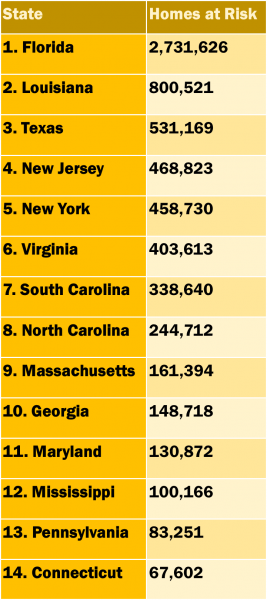 Among neighboring states, Connecticut ranked behind Massachusetts, New York and New Jersey.
Among neighboring states, Connecticut ranked behind Massachusetts, New York and New Jersey.
